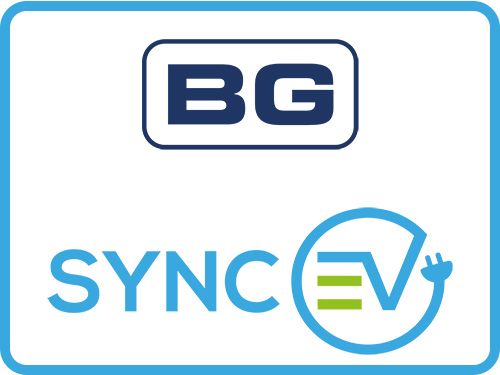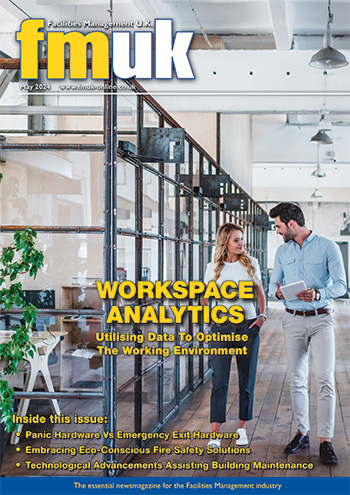Why Facilities Managers Need Support To Understand The Benefits That Automation Can Deliver
 By Tom Shrive, CEO of askporter.
By Tom Shrive, CEO of askporter.
The widespread adoption of automation technologies is to be expected over the next decade. After all, the need is pressing when we consider the stark realities of rising energy costs, looming recession, skills and labour shortages, and the continued challenges of an aging, historic and energy-inefficient building stock that is no longer fit for purpose or ready for the future.
Already, the introduction of automation technologies to facilities management has helped to revolutionise the industry, ushering in a new age of convenience for building managers and users alike. However, when considering the benefits that automation solutions can deliver, it is easy to get bogged down in complex discussions about how the technology works, rather than the end results that it can produce.
The bottom line is that facilities managers want to know that automation will make their job easier, more cost-effective, and efficient. If a simple task can be automated so that they can give their full attention to more complex matters, they will naturally want to do so.
Unfortunately, it’s not uncommon for digital solutions to be put in place that do not accurately address the specific needs of a business. Typically, this is due to the buyer misunderstanding what the tech can deliver, and the vendor either overpromising or underestimating what needs to be done to ensure a successful implementation.
That means the onus is on facilities managers to focus their efforts on ensuring they know what the problem is that they are trying to solve, and finding a suitable partner to help them do so, while keeping service disruption to a minimum as the technology is implemented.
The Risk Of Digital Transformation Failure Can Be Minimised
After all, it is very common for digital transformations to fail if they have not been properly planned for and integrated. This is illustrated by a Forbes assessment, which concluded that digital transformation has, on average, an 84% risk of failure. Typically, this is because there are not enough people in an organisation who understand the challenges of getting it right, and properly onboarding their employees to the importance of it.
Not only can such failure be hugely counterproductive to facilities managers’ efforts to drive efficiencies, but can also lead to unnecessary strains on their budgets, which are often limited and tightly controlled. As such, facilities managers must have confidence that any automation solution that they invest in will produce tangible benefits to their operations.
In an ideal scenario, facilities management companies would have an in-house digital lead to guide the automation strategy towards successful adoption. The reality is that many property management businesses do not have digital leaders at decision making levels. As a backdrop to this, the UK’s digital skills gap continues to widen as the pool of talented tech specialists has equally grown smaller, leaving HR departments struggling to hire those individuals who have the knowledge and capability to drive their digital transformation forward.
Without the necessary inhouse tech talent, facilities managers must rely on the advice of automation providers in order to do so. The risk is that the provider will use their knowledge and experience to dictate what they think the company needs rather than what it actually requires. The key takeaway then for facilities managers is they must address this by consulting with their company’s stakeholders in order to understand all the gaps and challenges in its operations and workflows. Once a suitable plan has been agreed to address this, they can easily set very clear KPIs for an automation provider to follow. Doing so will easily mitigate the risk of confusion and the resultant delays and increased costs that would otherwise follow.
Automation Isn’t A Silver Bullet
While automation can certainly produce many of the benefits that facilities managers might expect it to – namely to save time and money on completing laborious, manual tasks – that does not necessarily mean that it is going to be the ‘silver bullet’ solution that they see it as. Instead of placing all their chips on the table in this way, facilities managers need to carefully consider how they can best ensure that their investment will be successful.
For example, they may have legacy IT systems in place that automation technologies will need to be integrated with. However, it is not enough to simply roll out automation solutions and hope for the best – it is crucial to think about how new technology can be implemented effectively in a way that won’t disrupt existing infrastructure. As this can be a highly complex process in itself, facilities managers should seek to work with specialist providers who are committed to supporting them in their adoption of automation and will help them to integrate it as smoothly as possible.
Furthermore, certain automation solutions may require facilities managers and their teams to undergo specific training in order to work most effectively alongside them. This can be time consuming and expensive in itself, and an unpleasant surprise to facilities managers who are unaware of its importance. To avoid being caught out in this way, therefore, facilities managers must acknowledge that, while automation is designed to streamline processes and make their jobs easier, it is also reliant on their input and engagement if it is to be effective.
While it is easy to dismiss training as merely an added expense, facilities managers must consider how it could empower them and their team to work in new, more impactful ways with technology. After all, knowledge is power, and the more that teams can educate themselves about the benefits that automation will provide, the greater the likelihood that the rollout of the technology will be successful.
Facilities Managers Have A Crucial Part To Play
Nobody will know better than a facility manager does how a company’s day-to-day operations can be made more efficient, impactful, and cost-effective. That doesn’t mean they need a deep understanding of the technology itself, but rather what they can do to lay the groundwork for any prospective automation to ensure its success now and in the future. While automation can certainly help to protect and improve asset performance, income, and valuation while minimising costs across operations and management, it cannot do so alone.
In order to secure those benefits, facilities managers must recognise the important role they must play in ensuring any implementation is successful. That means ensuring all the stakeholders within their company are consulted and engaged with so as to understand what their needs are. Furthermore, as they undertake their technology adoption journey, they must be continually trained and evaluated to ensure they understand why changes are being made to their work practices so as to successfully adapt to them.
Given their other responsibilities, facilities managers should not be expected to do everything themselves when it comes to automation. Their role ultimately is to set expectations as to what the business needs and, in doing so, clear the way for internal tech teams or external consultants to go about their work. To be clear, you don’t have to be a technology expert to be a facilities manager, but being an organised, big-picture thinker who knows how to delegate certainly helps!
Click the article to enlarge it.


























































